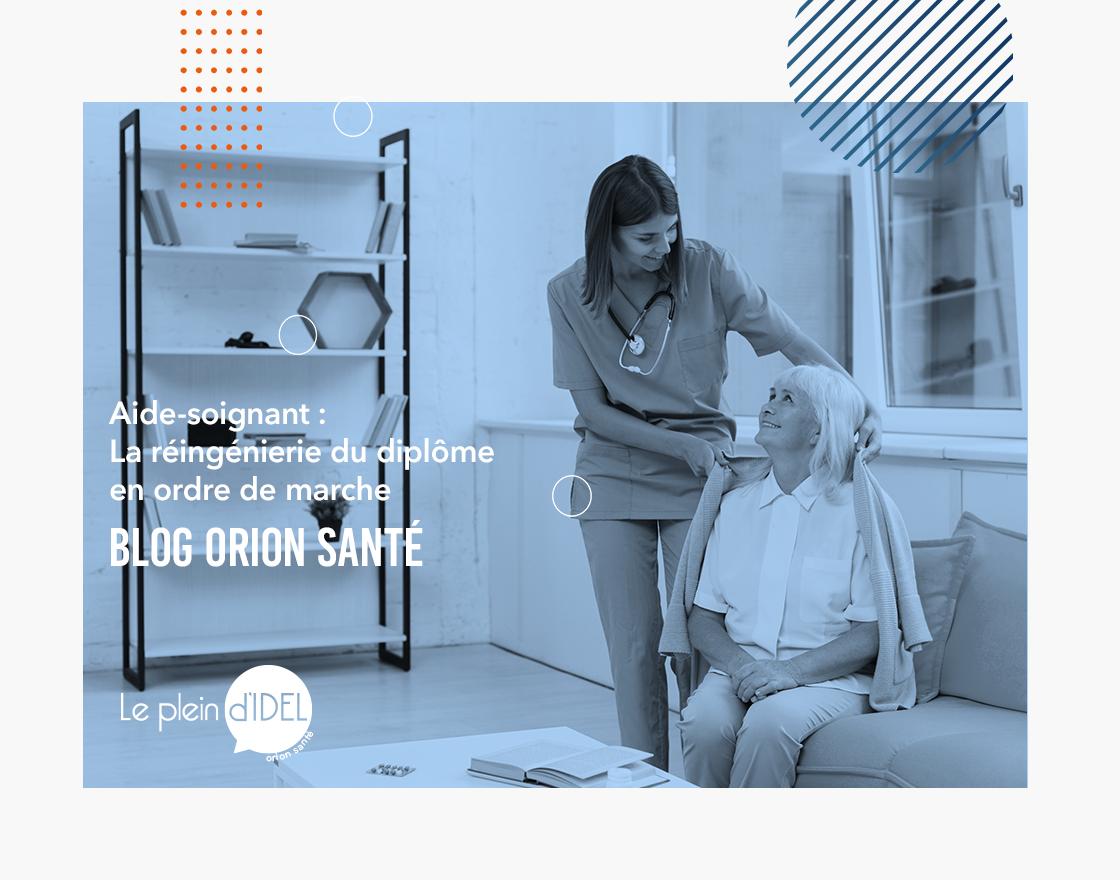Nursing assistants: relegation of the diploma in working order
Started in 2015, interrupted and then resumed in 2019, consultation on the relegating of the training of nursing assistants (AS) seems to be coming to an end. The High Council of Paramedical Professions (HCPP) gave a favorable opinion to a draft decree relating to new acts for nursing assistants and an extension of the duration of the training at 12 months-instead of 10 currently. This relegate, which had been previously announced for September 2020 by the former Minister of Health Agnès Buzyn, changes the skills of nursing assistants so that they can meet the needs of the aging population by ensuring better care of elderly and their pathologies. A way also to enhance the profession and make the profession attractive, as announced during the health segur. Three missions aimed at reflecting the specificity of the profession are defined in the text: supporting the person in the activities of their daily and social life in compliance with their life project, collaborate in the personalized care project in their field of skills, and contribute risk prevention and interprofessional clinical reasoning.
"I feared that there were more unfavorable opinions than favorable, and that the text is not validated due to the opposition of nursing unions and the nursing order," recognizes Arlette Schuhler, secretary general of the FederationNational of associations of caregivers (FNAAS).But despite these advances, "we remain on our hunger in relation to the proper role of nursing assistants and the liberal status which is not yet recognized, she regrets.We would have liked more autonomy.I think it will come in the medium term.»»
Les infirmiers libéraux mécontents
This is out of the question for liberal nursing unions (Idels), already hostile to the draft decree."Transferring some of our acts to nursing assistants and assigning them acts whose liberal nurses do not have autonomy in their own role is an assumed and uninhibited drift towards low-cost medicine," denounced convergence nurse in a press releasedated April 20.It’s very dangerous for the most fragile, older patients, and it’s deeply unfair for liberal nurses who sweat blood and water every day around the country to treat where no one is going.»»
Idel unions are far from approving the widening of the field of caregivers applied to the Liberal, in particular the possibility of taking a hair levy for the measurement of blood sugar. Currently, this act, which involves the break -in of the skin barrier, is achievable by a doctor and, by delegation, by a nurse. "What is the point of having the skills to perform an act if we do not know how to interpret the results," wonders Marianne Pache, secretary general of the National Union of Liberal Nurses (SNIIL) and member of the HCPP. And to continue: “In hospital centers or in structures, the nursing assistants are supervised by nurses. But this is not the case at home, since they generally work in home nursing services (SSIAD), with a nurse coordinator accessible by phone. When the caregiver has taken the hair blood sugar, we fear that she calls the coordinator and that she tells her what to do remotely. This will lead to a task shift and safety for the patient will no longer be ensured. The Sniil had asked that within the framework of the SSIAD, the gesture could not be taken by the nursing assistance only in the presence of a nurse and not under her authority; A proposal that has not been retained. For Arlette Schuhler, no problem is to be expected, "the nursing assistant will transmit information to nurses as he already does".
Laure Martin










10 Ways to Stay Safe When You Live Alone
Hotels, restaurants: tips paid by credit card will soon be tax-exempt
"I was a rot in the evening and a good cop in the morning": meeting with "Haurus", the thug policeman of the DGSI
Will Belgian workers quit?